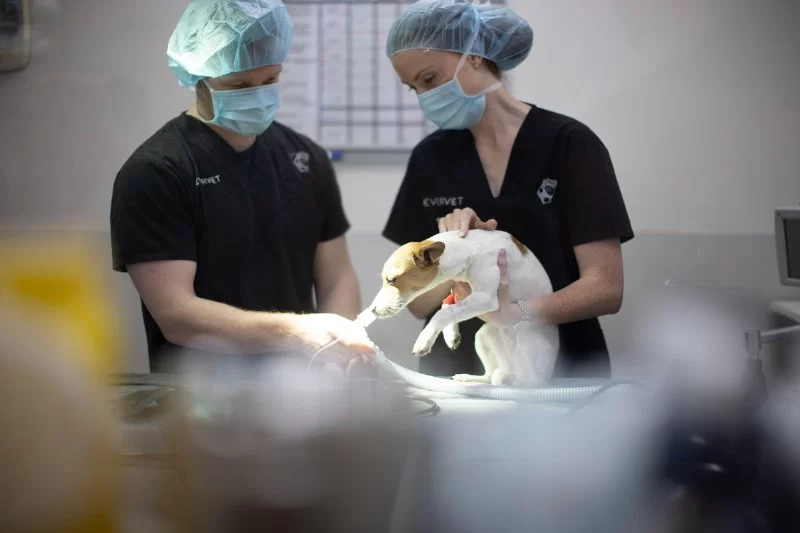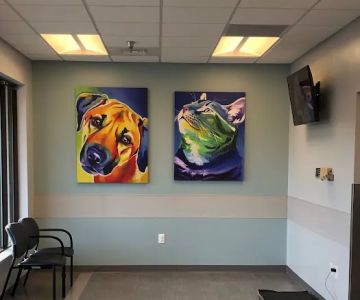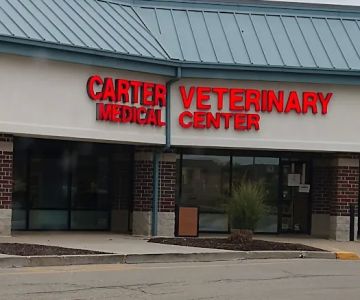How to Become a Veterinary Oncologist: Your Complete Career Guide
- understanding-the-role-of-a-veterinary-oncologist
- academic-pathway-to-veterinary-oncology
- residency-specialization-and-certification-process
- daily-life-and-real-stories-from-veterinary-oncologists
- why-veterinary-oncology-matters-now-more-than-ever
- turn-your-passion-into-purpose-and-start-your-veterinary-oncology-career
1. Understanding the Role of a Veterinary Oncologist
A veterinary oncologist is a highly trained animal doctor specializing in diagnosing and treating cancer in pets and other animals. They don't just deliver treatments—they guide pet owners through one of the most emotionally taxing experiences of pet ownership. These specialists combine compassion with cutting-edge science, often working closely with surgeons, radiologists, and general veterinarians.
In a world where pets are family, the demand for veterinary oncology services is rising. That makes understanding how to become a veterinary oncologist not just relevant, but vital for those drawn to both medicine and animal welfare.
2. Academic Pathway to Veterinary Oncology
2.1. Earning a Bachelor's Degree
Before stepping into the veterinary field, you’ll need a strong undergraduate foundation—typically in biology, animal science, or chemistry. Top programs recommend hands-on experience through internships or animal shelters to make your veterinary school application stand out.
2.2. Veterinary School Admission
Getting into a Doctor of Veterinary Medicine (DVM) program is highly competitive. Schools in the U.S. and Europe often require not only strong academic records but letters of recommendation and Veterinary College Admission Test (VCAT) scores. Once accepted, expect four years of rigorous training in animal anatomy, physiology, and pharmacology.
2.3. Focus on Oncology Early
Though oncology is a postgraduate specialty, you can signal your interest early. Attend lectures, join oncology clubs, and find mentors in the field. Shadowing a practicing veterinary oncologist can open your eyes to the emotional intelligence and precision this work demands.
3. Residency, Specialization, and Certification Process
3.1. Completing a Rotating Internship
After earning your DVM degree, you’ll enter a one-year rotating internship. This clinical experience across various specialties lays the groundwork for oncology-focused residency training.
3.2. Oncology Residency Training
To become a certified veterinary oncologist, you’ll need to complete a 3-year residency program approved by the American College of Veterinary Internal Medicine (ACVIM) or equivalent institutions in your country. This intensive program includes hands-on treatment, clinical research, and case study management.
3.3. Board Certification
The final step is board certification. You must pass a rigorous exam administered by ACVIM. Once certified, you are officially a Diplomate in Veterinary Oncology—eligible for senior clinical roles, academic research, and leadership positions in animal hospitals.
4. Daily Life and Real Stories from Veterinary Oncologists
4.1. The Human Side of Animal Medicine
Dr. Laura, a veterinary oncologist in New York, recalls her most emotional case—a Golden Retriever named Max, whose lymphoma treatment extended his life by 18 months. “It wasn’t just about medicine. It was about trust, hope, and seeing the bond between pet and owner deepen,” she shared on a recent veterinary podcast.
4.2. Balancing Science and Empathy
Veterinary oncologists often juggle the emotional needs of pet owners with the clinical demands of treatment. This duality is what makes the job both draining and deeply rewarding. Many professionals say the ability to communicate with empathy is as important as technical skill.
5. Why Veterinary Oncology Matters Now More Than Ever
5.1. Growing Demand for Pet Cancer Treatment
With pets living longer and owners more willing to pursue advanced care, the demand for veterinary oncology has surged. According to a 2023 study, nearly 50% of dogs over age 10 develop cancer—making early detection and specialized treatment crucial.
5.2. Advancements in Veterinary Cancer Therapies
From immunotherapy to gene-targeted medicine, oncology has evolved rapidly. Veterinary oncologists today have access to treatments once reserved for human medicine. These breakthroughs are not just extending lives—they're improving quality of life for countless animals.
6. Turn Your Passion into Purpose and Start Your Veterinary Oncology Career
If you’ve ever felt a calling to help animals at their most vulnerable, becoming a veterinary oncologist may be your path. It's a career that blends science, emotion, and purpose—offering not just a job, but a legacy.
Whether you're a pre-vet student or a licensed DVM looking to specialize, now is the time to take the next step. Explore accredited residency programs, speak with professionals in the field, and invest in courses that prepare you for oncology certification.
Ready to take action? Explore our handpicked selection of vet oncology prep materials, mentorship networks, and career tools to help you move forward with confidence. Start shaping your future today—your patients (and their humans) are waiting.












